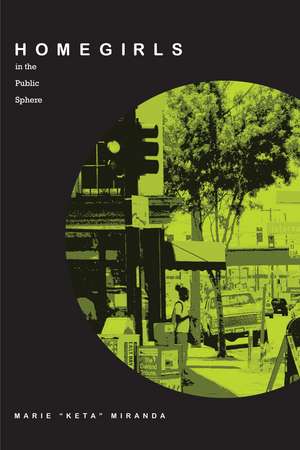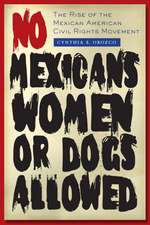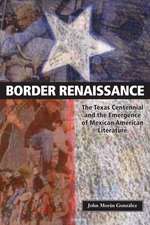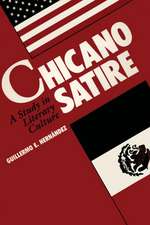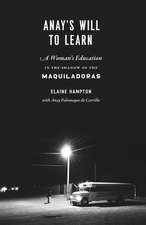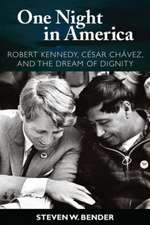Homegirls in the Public Sphere
Autor Marie "Keta" Mirandaen Limba Engleză Paperback – dec 2003
In telling the story of her research in the Fruitvale community of Oakland, California, Miranda honestly reveals how even a sympathetic ethnographer from the same ethnic group can objectify the subjects of her study. She recounts how her project evolved into a study of representation and its effects in the public sphere as the young women spoke out about how public images of their lives rarely come close to the reality. As Miranda describes how she listened to the gang members and collaborated in the production of their documentary, she sheds new light on the politics of representation and ethnography, on how inner city adolescent Chicanas present themselves to various publics, and on how Chicana gangs actually function.
Preț: 203.73 lei
Nou
Puncte Express: 306
Preț estimativ în valută:
38.98€ • 40.79$ • 32.38£
38.98€ • 40.79$ • 32.38£
Carte tipărită la comandă
Livrare economică 03-17 aprilie
Preluare comenzi: 021 569.72.76
Specificații
ISBN-13: 9780292701922
ISBN-10: 0292701926
Pagini: 231
Ilustrații: 13 b&w photographs
Dimensiuni: 152 x 229 x 15 mm
Greutate: 0.45 kg
Editura: University of Texas Press
Colecția University of Texas Press
ISBN-10: 0292701926
Pagini: 231
Ilustrații: 13 b&w photographs
Dimensiuni: 152 x 229 x 15 mm
Greutate: 0.45 kg
Editura: University of Texas Press
Colecția University of Texas Press
Notă biografică
Marie “Keta” Miranda is Assistant Professor of Mexican American Studies in the division of Bicultural/Bilingual Studies at the University of Texas at San Antonio.
Cuprins
- List of Abbreviations
- Acknowledgements
- Representation and the Public Sphere
- Rollin' through Oaktown
- An Ethnographer's Tale
- Mediating Images: It's a Homie Thang!
- Affinity and Affiliation
- Cross-Sites for Cross-Talks
- Dialoguing Differences
- Frequently Asked Questions
- Notes
- Bibliography
- Index
Descriere
Marie “Keta” Miranda presents the results of an ethnographic collaboration with Chicana gang members, in which they contest popular and academic representations of Chicana/o youth and also construct their own narratives of self identity through a document
